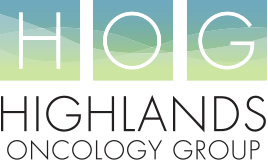Most ovarian cancers are not linked to specific ovarian cancer risk factors and occur spontaneously. Certain traits are more common in women that develop ovarian cancer, though no particular trait or set of traits has been positively correlated with risk of developing ovarian cancer. Family history probably plays the most significant role in developing ovarian cancer, but a genetic link is observed in less that 10% of all tumors.
Identifiable Risk Factors
Age: The risk of developing ovarian cancer increases with advancing age. Most women are diagnosed over the age of 50.
Family history: Mutations of breast cancer associated genes (BRCA 1 and 2) are present in approximately 10% of all ovarian cancers. Certain populations, including Ashkenazi Jews, carry increased rates of mutations. If you have a known BRCA gene mutation, your risk of cancer may be as high as 25-60%. Not all women with a family history of breast or ovarian cancer have an identifiable genetic mutation. If you have more than one first-degree relative with ovarian cancer, you too may be at increased risk.
Personal history: If you have had breast or colon cancer, you are at increased risk for ovarian cancer.
Childbearing: Many studies have shown women who have never been pregnant are at higher risk. Infertility may confer a slight increase in overall risk, but this is highly controversial.
Further controversy exists for other risk factors. A link to ovarian cancer has not been established for:
- Obesity
- Hormone replacement therapy
- Talcum powder
What role do genetics play in ovarian cancer?



